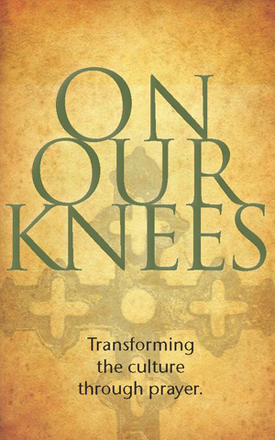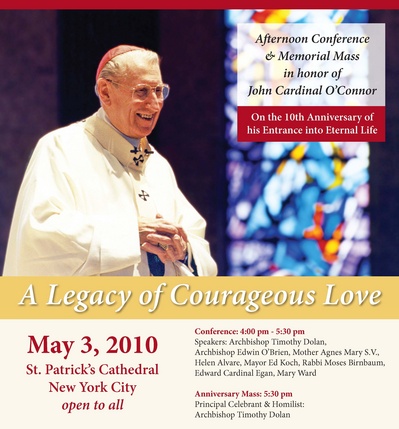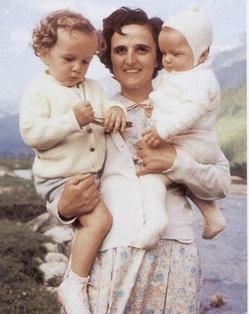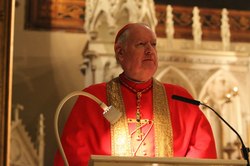Tag: pro life
National Prayer for Life Campaign launched
Yesterday, May 3rd,
marked the 10th Anniversary of the entrance into eternal life of John Cardinal
O’Connor.
Many of you were able to be present -and others were present through
EWTN–and shared prayer with us for the Cardinal’s eternal peace and God’s
mercy. In case you want see the video coverage, you may watch it here and
I suspect that EWTN will run the program again.
At the end of the Mass,
Archbishop Timothy Dolan launched and introduced a new effort of the Knights of
Columbus and the Sisters of Life called the National Prayer for Life
Campaign.
Please join us in praying this
prayer every day and give it to others; all of us are hoping that it spreads
throughout our nation so that a Culture of Life may be fully restored!
Archbishop Dolan & Br Ignatius Perkins honored at St Catherine of Siena Priory (NYC) healthcare Mass
 The other day I mentioned the 4th annual Mass and award for healthcare professionals who treat the sick and the dying with dignity at Saint Catherine of Siena Priory & Church (East 68th St, NYC) suggesting prayerful solidarity and physical presence, if possible. I had hoped to go myself, but too many things to do at the seminary in the final week of classes prevented me.
The other day I mentioned the 4th annual Mass and award for healthcare professionals who treat the sick and the dying with dignity at Saint Catherine of Siena Priory & Church (East 68th St, NYC) suggesting prayerful solidarity and physical presence, if possible. I had hoped to go myself, but too many things to do at the seminary in the final week of classes prevented me.
10th Anniv. of Death of Cardinal John O’Connor’s death marked by Mass and retrospective
Saint Gianna Berretta Molla: wife and doctor with a passion for life
Holy Spirit,
Source of every perfection, give us wisdom, intelligence, and courage so that,
following the example of Saint Gianna and through her intercession, we may know
how to place ourselves at the service of each person we meet in our personal,
family and professional lives, and thus grow in love and holiness. Amen.
As Saint Gianna said, “Every
vocation is a call to motherhood or fatherhood, earthly, spiritual or moral.
God has placed in us an instinct for life. A priest is a father, nuns are
mothers, mothers of souls.”
Read the Holy See’s biography of Saint Gianna Berretta Molla
On this feast of Saint Gianna we look for
heavenly assistance with the certain hope that our prayers will be answered.
Our prayerful request of Saint Gianna is for her to ask the Lord for abundant
graces to carry on the great work of Catholic Healthcare in New York and beyond
at The Gianna Center –The Catholic
Healthcare Center Women. It’s Pro-life, Pro-woman, Pro-Marriage,
Pro-family and Pro-God!!!!
Cardinal Egan at Holy Innocents Church NYC
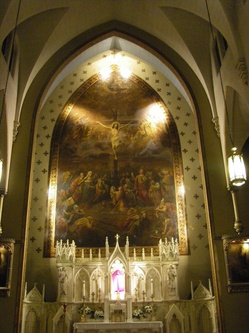 Cardinal Edward Michael Egan, emeritus archbishop of New York, preached at Mass tonight observing the the 15th anniversary of Evangelium Vitae at The Church of the Holy Innocents (West 37th Street, NYC). Holy Innocents is a beautiful church consecrated in 1901 by Archbishop Michael Corrigan.
Cardinal Edward Michael Egan, emeritus archbishop of New York, preached at Mass tonight observing the the 15th anniversary of Evangelium Vitae at The Church of the Holy Innocents (West 37th Street, NYC). Holy Innocents is a beautiful church consecrated in 1901 by Archbishop Michael Corrigan.
Paul Marx, monk & priest RIP
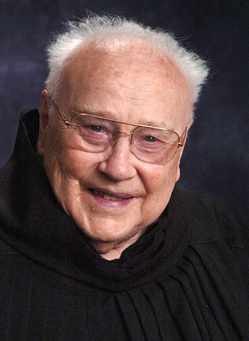 Saturday morning the great Benedictine monk and priest and Pro-life advocate died at the age of 90. Pray for Father Paul, his monastic community and the on-going work of the Culture of Life.
Saturday morning the great Benedictine monk and priest and Pro-life advocate died at the age of 90. Pray for Father Paul, his monastic community and the on-going work of the Culture of Life.
Catholic doctors oppose pending healthcare reform bill
Some nuns are against bishops in support of Obama’s healthcare bill
Yesterday, Network: A National Catholic Social Justice Lobby, released a letter in support of Obama’s bill (HR 3590) to overhaul US healthcare. Obama proposal and the bill put forward is morally flawed.
Natural moral guarantees respect for the entire created order, including the human person, Pope tells Pontifical Academy of Life
On February 14, 2010, the Holy Father spoke to the Pontifical Academy for Life. All but the introductory paragraph is noted here.
The issues that
revolve around the theme of bioethics allow us to confirm how much these
underlying questions in the first place pose the “anthropological
question.” As I state in my last encyclical letter, Caritas in Veritate:
“A particularly crucial battleground in today’s cultural struggle between
the absolutism of technology and human moral responsibility is the field of
bioethics, where the very possibility of integral human development is
radically called into question. In this most delicate and critical area, the
fundamental question asserts itself force-fully: is man the product of his own
labors or does he depend on God? Scientific discoveries in this field and the
possibilities of technological intervention seem so advanced as to force a
choice between two types of reasoning: reason open to transcendence or reason
closed within immanence” (no. 74).
Before such questions, which touch in
such a decisive manner human life in its perennial tension between immanence
and transcendence, and which have great relevance for the culture of future
generations, it is necessary to create a holistic pedagogical project that
permits us to confront these issues in a positive, balanced and constructive
vision, above all in the relationship between faith and reason. The questions
of bioethics often place the reminder of the dignity of the person in the
foreground. This dignity is a fundamental principle that the faith in Jesus
Christ crucified and risen has always defended, above all when it is ignored in
regard to the humblest and most vulnerable persons: God loves every human being
in a unique and profound way. Bioethics, like every discipline, needs a
reminder able to guarantee a consistent understanding of ethical questions
that, inevitably, emerge before possible interpretive conflicts. In such a
space a normative recall to the natural moral law presents itself. The
recognition of human dignity, in fact, as an inalienable right first finds its
basis in that law not written by human hand but inscribed by God the Creator in
the heart of man. Every juridical order is called to recognize this right as
inviolable and every single person must respect and promote it (cf. Catechism
of the Catholic Church, 1954-1960).
Without the foundational principle of human
dignity it would be difficult to find a source for the rights of the person and
the impossible to arrive at an ethical judgment if the face of the conquests of
science that intervene directly in human life. It is thus necessary to repeat
with firmness that an understanding of human dignity does not depend on
scientific progress, the gradual formation of human life or facile pietism
before exceptional situations. When respect for the dignity of the person is
invoked it is fundamental that it be complete, total and with no strings
attached, except for those of understanding oneself to be before a human life.
Of course, there is development in human life and the horizon of the
investigation of science and bioethics is open, but it must be reaffirmed that
when it is a matter of areas relating to the human being, scientists can never
think that what they have is only inanimate matter capable of manipulation in
their hands. Indeed, from the very first moment, the life of man is
characterized as “human life” and therefore always a bearer —
everywhere and despite everything — of its own dignity (cf. Congregation for
the Doctrine of the Faith, Instruction Dignitas Personae on Certain Bioethical
Questions, 5). Without this understanding, we would always be in danger of an
instrumental use of science with the inevitable consequence of easily ceding to
the arbitrary, to discrimination and to the strongest economic
interest.
Joining bioethics and natural moral law permits the best confirmation
of the necessary and unavoidable reminder of the dignity that human life
intrinsically possesses from its first instant to its natural end. But in the
contemporary context, while a just reminder about the rights that guarantee
dignity to the person is emerging with ever greater insistence, one notes that
such rights are not always recognized in the natural development of human life
and in the stages of its greatest fragility. A similar contradiction makes
evident the task to be assumed in different spheres of society and culture to
ensure that human life always be seen as the inalienable subject of rights and
never as an object subjugated to the will of the strongest.
History has shown
us how dangerous and deleterious a state can be that proceeds to legislate on
questions that touch the person and society while pretending itself to be the
source and principle of ethics. Without universal principles that permit a
common denominator for the whole of humanity the danger of a relativistic drift
at the legislative level is not at all something should be underestimated (cf.
Catechism of the Catholic Church, 1959). The natural moral law, strong in its
universal character, allows us to avert such a danger and above all offers to
the legislator the guarantee for an authentic respect of both the person and the
entire created order. It is the catalyzing source of consensus among persons of
different cultures and religions and allows them to transcend their differences
since it affirms the existence of an order impressed in nature by the Creator
and recognized as an instance of true rational ethical judgment to pursue good
and avoid evil. The natural moral law “belongs to the great heritage of
human wisdom. Revelation, with its light, has contributed to further purifying
and developing it” (John Paul II, Address to the Plenary Assembly of the
Congregation of the Doctrine of the Faith, February 6, 2004).
Illustrious
members of the Pontifical Academy for Life, in the present context your task
appears more and more delicate and difficult, but the growing sensitivity in
regard to human life is an encouragement to continue, with ever greater spirit
and courage, in this important service to life and the education of future
generations in the evangelical values. I hope that all of you will continue to
study and research so that the work of promoting and defending life be ever
more effective and fruitful. I accompany you with the apostolic blessing, which
I gladly extend to those who share this daily task with you.
